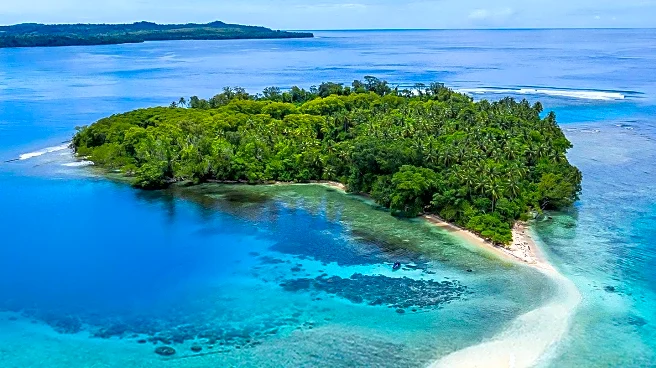What's Happening?
Health officials have issued a warning regarding a significant outbreak of dengue fever across the Pacific Islands. This outbreak is considered one of the most severe in recent years, with over 16,500 confirmed cases and 17 deaths reported since January. Countries such as Fiji, Samoa, and Tonga are experiencing high infection rates, with Fiji alone recording more than 10,000 cases and eight deaths. The World Health Organization and the Pacific Syndromic Surveillance System are closely monitoring the situation. Experts attribute the increase in dengue cases to rising global temperatures, which are extending the transmission seasons and making some areas at risk year-round.
Why It's Important?
The outbreak of dengue fever in the Pacific Islands highlights the growing health risks associated with climate change. As global temperatures rise, mosquito-borne diseases like dengue are becoming more frequent and severe, posing a significant threat to public health. The Pacific Islands, despite contributing minimally to global emissions, are on the frontlines of these climate-induced health challenges. The situation underscores the need for enhanced disease surveillance, mosquito control programs, and global efforts to mitigate climate change impacts. The outbreak also serves as a warning to other regions that may face similar health threats as environmental conditions continue to change.
What's Next?
Health ministries in the affected regions are collaborating with the World Health Organization to implement emergency response measures, including mosquito control and community education programs. Efforts are also underway to strengthen disease surveillance systems to better prepare for future outbreaks. On a global scale, researchers are exploring vaccine development and advanced mosquito-control technologies. The situation calls for increased advocacy for climate action to prevent further health crises linked to environmental changes.










